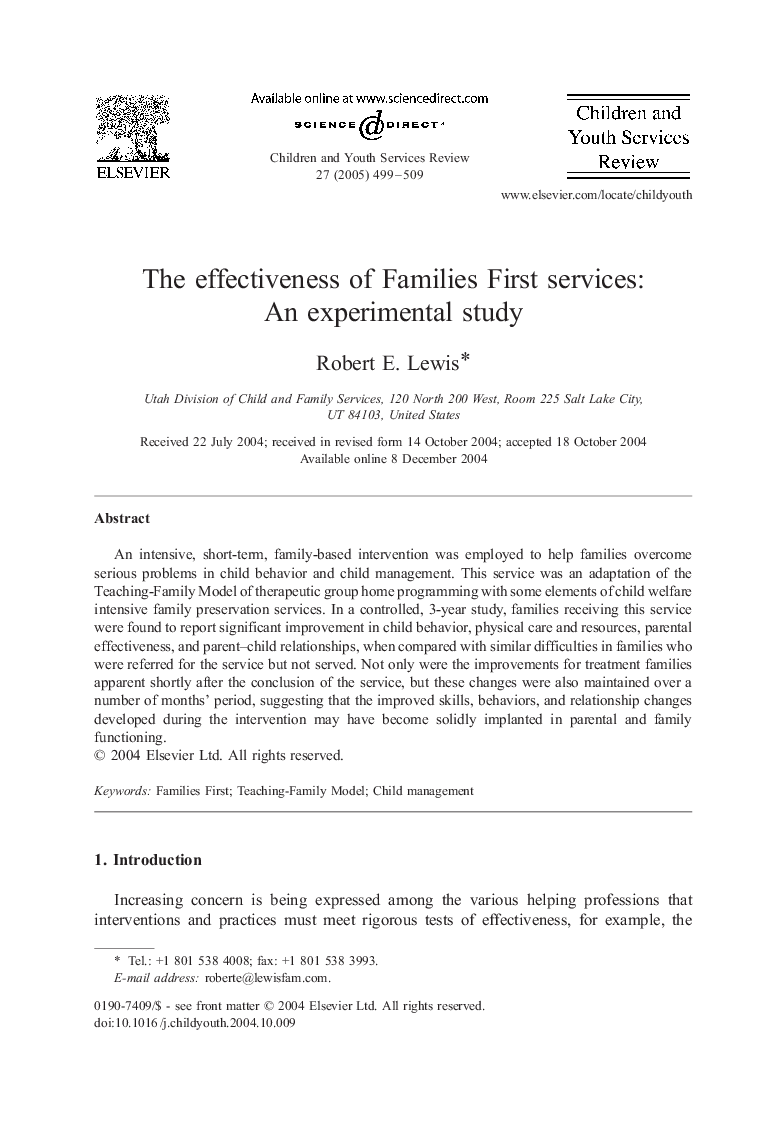| Article ID | Journal | Published Year | Pages | File Type |
|---|---|---|---|---|
| 10312001 | Children and Youth Services Review | 2005 | 11 Pages |
Abstract
An intensive, short-term, family-based intervention was employed to help families overcome serious problems in child behavior and child management. This service was an adaptation of the Teaching-Family Model of therapeutic group home programming with some elements of child welfare intensive family preservation services. In a controlled, 3-year study, families receiving this service were found to report significant improvement in child behavior, physical care and resources, parental effectiveness, and parent-child relationships, when compared with similar difficulties in families who were referred for the service but not served. Not only were the improvements for treatment families apparent shortly after the conclusion of the service, but these changes were also maintained over a number of months' period, suggesting that the improved skills, behaviors, and relationship changes developed during the intervention may have become solidly implanted in parental and family functioning.
Related Topics
Health Sciences
Medicine and Dentistry
Perinatology, Pediatrics and Child Health
Authors
Robert E. Lewis,
